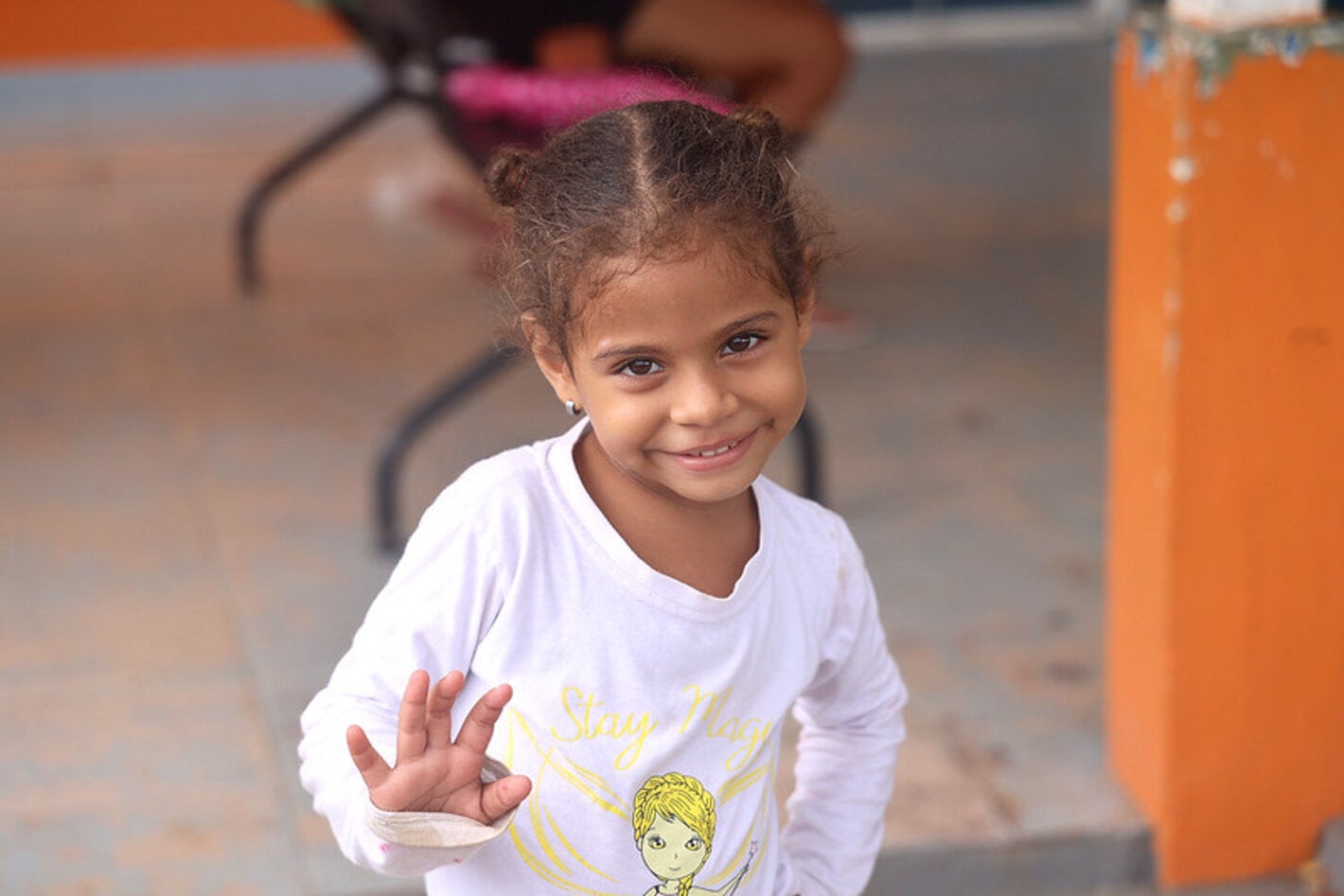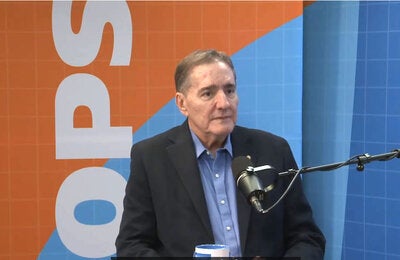
Mexico City, 8 May 2025 - As part of the 30th International Pediatric Association Congress (IPA 2025), the Pan American Health Organization (PAHO) convened a dynamic workshop to advocate for a transformative shift in the provision of health care for children and adolescents through a Life Course Approach (LCA).
The workshop “Strengthening Integrated Health Care in the First Two Decades of Life through a Life Course Approach” gathered pediatricians, public health professionals, and regional experts together with presentations, discussions, and collaborative planning. The exercise aimed to orient participants on the theoretical and practical dimensions of a Life Course Approach and its value in improving the quality, continuity, and integration of health services for children and adolescents across the Americas.
“The participants agreed on the need to improve the quality of health services for children and adolescents and saw value in the Life Course Approach, but also noted challenges to change the status quo towards a more comprehensive, person-centered approach that builds health ” said Dr. Sonja Caffe, PAHO/WHO Regional Adolescent Health Advisor, who led the workshop and delivered a key presentation on integrated, person-centered care during the first two decades of life.
A pre-recorded keynote presentation by Dr. Enrique Vega, Unit Chief of PAHO’s Life Course Unit, established the context by outlining the principles and strategic rationale of the LCA.
“The health system will play a central role in enabling individuals’ and populations’ health although it will never be the sole provider of their needs. We must work in partnership with other sectors and ensure the active participation of communities, families, and individuals in shaping their own health,” stated Dr. Vega.
The workshop also featured a panel discussion with regional leaders including Dr. Maria del Carmen Calle (ORAS/CONHU) and Dr. Marilu Chiang, Executive Director of Prisma NGO. The panelists examined opportunities, barriers, and country-level implications of implementing an LCA in real-world health systems.
During the roundtable discussion, participants explored how to practically implement the LCA in health systems, emphasizing that it is not a prescriptive program but a flexible framework and a shift in care delivery that promotes health and prioritizes long-term developmental trajectories. Discussions highlighted the need to embed LCA principles in medical education, with proposals like a university consortium to integrate it horizontally across curricula. Other key themes included strengthening training in health promotion, supporting provider well-being, aligning services with the specific needs of children and adolescents according to their life stages and lived experiences, and focusing on environments that foster resilience before clinical intervention is needed. Pediatricians affirmed that applying the LCA in primary care, often the first and only point of contact for young people, requires a cultural and conceptual shift that begins with how health professionals are trained.
The Life Course Approach advocates for a shift from fragmented, disease-focused services to comprehensive, person-centered care that nurtures well-being throughout early life stages. By recognizing the critical role of early interventions and continuity of care, the LCA enhances not only survival but also healthy development and human potential.
PAHO continues to champion this approach across the Region of the Americas as part of its broader commitment to universal health and sustainable development.



